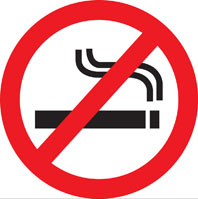
WHO publishes a statement amid tobacco control in Georgia
By Khatia Bzhalava
Tuesday, May 19
In the statement published by the World Health Organisation’s representation to Georgia, WHO calls on the Georgian government and every decision maker to resist the attempt of weakening the legislation and comprehensive politics in the field of tobacco control.
According to the statement, WHO expresses its gratitude towards Georgia in terms of its non-stop loyalty to the politics of tobacco control, which intends defense of health and economic prosperity of the community from the damage caused by consumption of tobacco.
In the European region of WHO, Georgia has one of the worst results tobacco consumption-wise, in particular, third of the adult population and 15% of young people are nicotine consumers and as a result, the country forfeits 2.4% of GDP every year.
In response to a high prevalence of tobacco use and related burden, the Georgian Parliament significantly amended tobacco control regulations. Passed in May 2017, the new legislation is considered one of the strongest tobacco control laws in the WHO European Region.
WHO estimates the enforcement of the above-mentioned law, as well as efforts of its successful introduction to the community as a step forward in diminishing the rate of tobacco consumption.’ Georgia is a great example for other member states of WHO, and we gladly facilitate sharing this experience on the regional and global levels, ’ reads the statement.
However, the organisation considers that despite this achievement, according to global tendencies, Georgia might face severe challenges as the tobacco industries actively interfere in the process of setting a sustainable system of tobacco control.
According to the special letter sent to the Parliament of Georgia on March 14, 2020, from Hans Henri P. Kluge, World Health Organization regional director for Europe, in time of COVID-19, this is especially current problem as tobacco industry takes advantage of the hardship and uses it to reduce the control over the lethal product. `That is why the concerns of the industry come in fundamental and irreconcilable resistance to the interests of public health,’
As the latter states, one of the displays of multiple attempts to weaken justice of tobacco controlling in Georgia is the endeavor of eligibility to sell a pack of so-called Rollie cigarettes with the capacity of 15grams. 15 grams is far less than permitted by the current law. Kluge considers this initiative to be against the requirements of the frame convention and the concerns of public health.
As it is mentioned in the statement of WHO, selling tobacco with smaller packs will increase its accessibility especially in young people and vulnerable groups. The 16th article of frame convention particularly regulates this issue and urges the member countries of WHO to establish the best practice in this very term. As it is said in the statement, Georgia has already achieved this by determining the appropriate capacity of a single pack as 50 or 100 grams. It is noteworthy that in this regard, the legislation of Georgia and 2014/04/EU directive of Europe’s Parliament and council, which determines that a pack of tobacco must not contain products less than 30 grams, come in compliance with each-other.
The milestone law of Georgia on tobacco control:
• prohibits smoking in "any buildings and other structures.”
• prohibits most forms of advertising and promotion of tobacco products
• On smoked tobacco products, the law requires rotating pictorial health warnings to cover 65 percent of the front and rotating text-only health warnings to cover 65 percent of the back of the pack.
• The law prohibits the sale of tobacco products via vending machines, the internet, and in schools (and within 50 meters of schools), stadiums, healthcare facilities, and cultural facilities.


